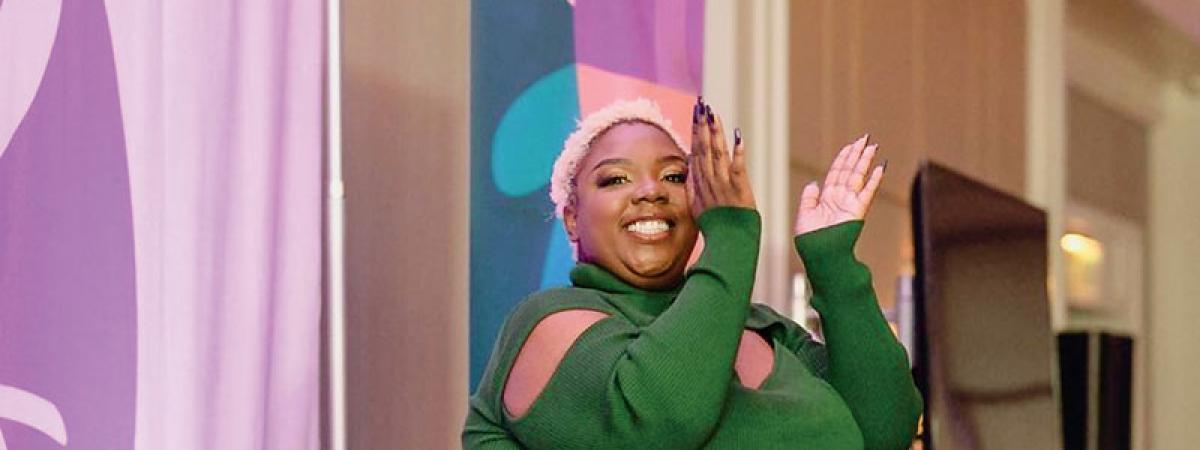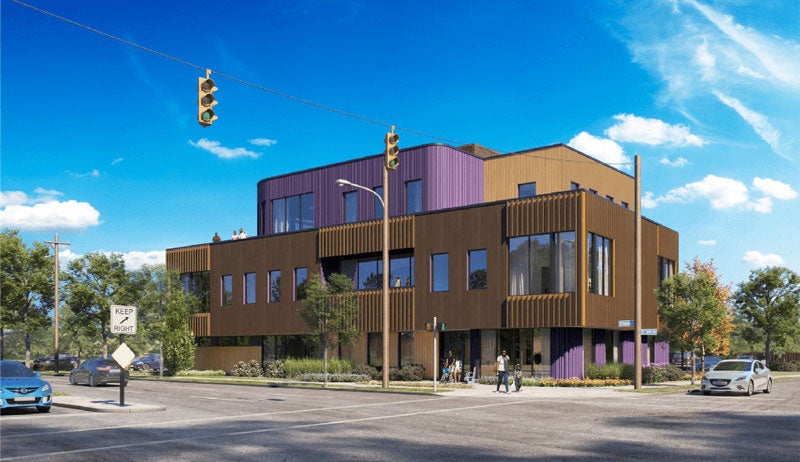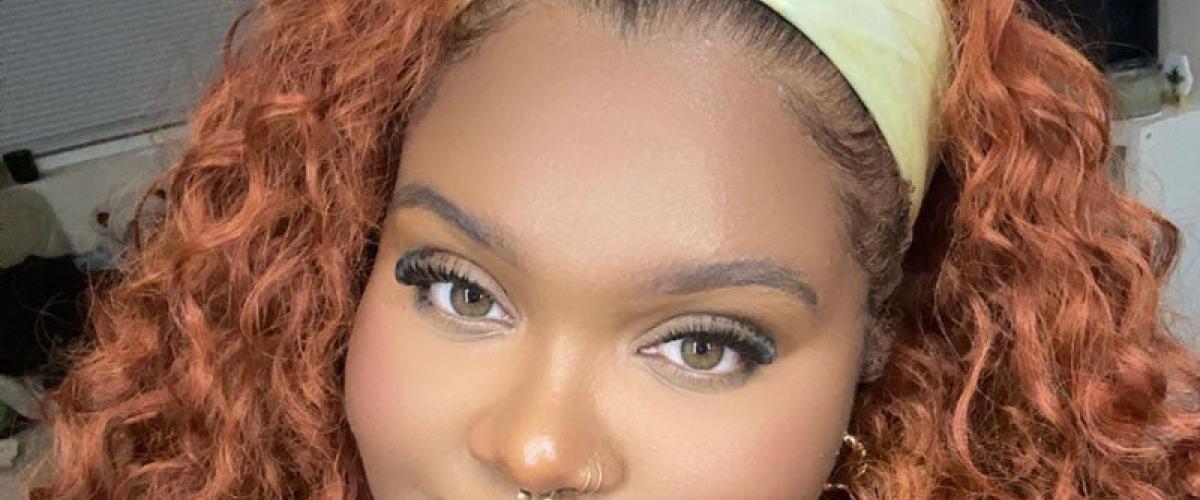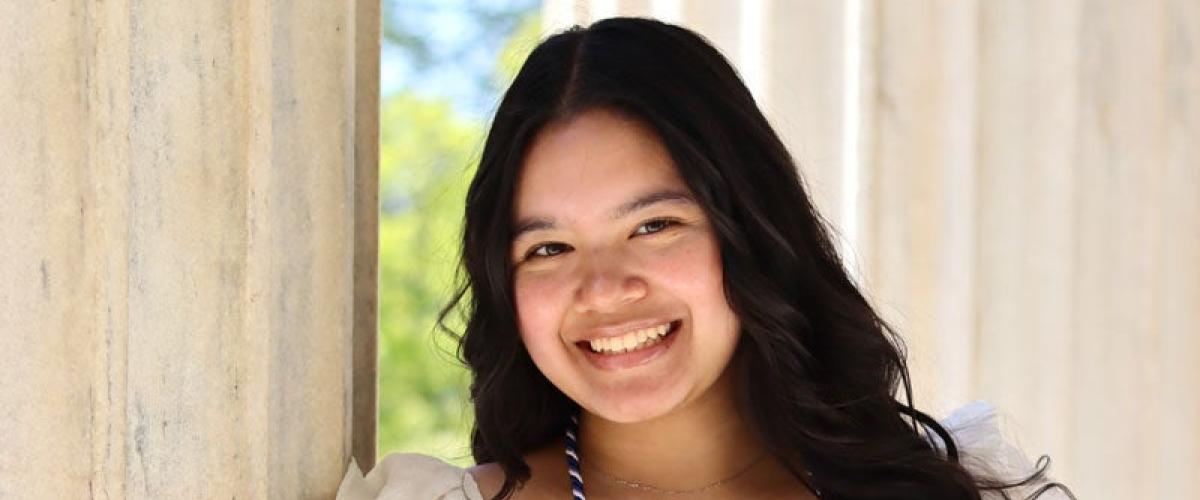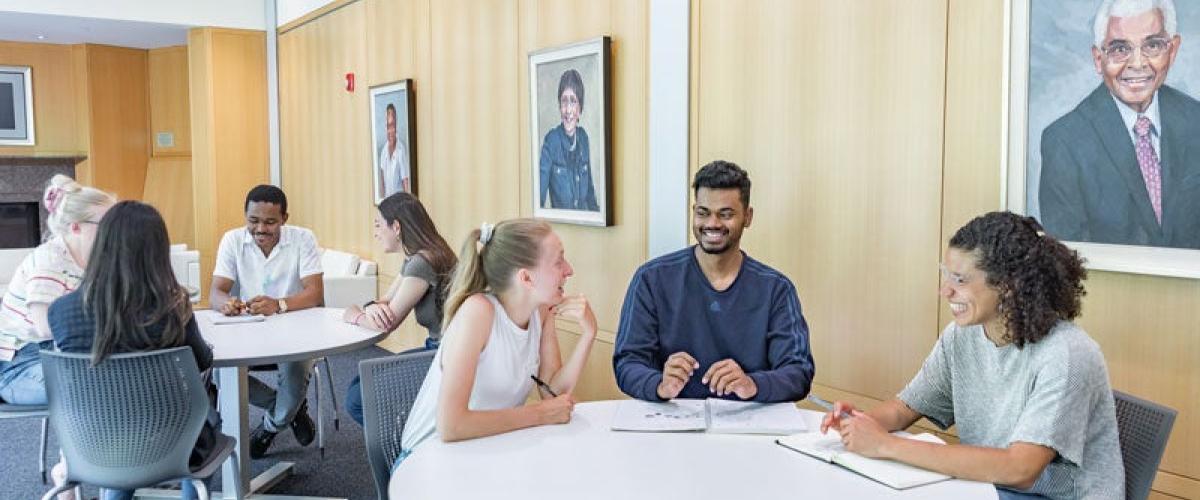Alumna leads nonprofit helping Black women at the highest risk for infant mortality have healthy pregnancies and children
A new building with life-changing possibilities will soon rise in Cleveland's Hough neighborhood—a $15 million, 15,000-square-foot birthing center for women at the highest risk for infant death.
It has been the dream and focus of Jazmin Long (SAS '15, MNO '15), president and CEO of Birthing Beautiful Communities (BBC), a nonprofit addressing a crisis within the Black community: maternal and infant mortality.
Nationally, Black women in 2022 were more than twice as likely as white women to die during or within six weeks of when their pregnancy ended, according to the Centers for Disease Control and Prevention (CDC). The disparity isn't rooted in socioeconomic differences; the pregnancy-related mortality rate for Black women with a college or postgraduate degree is 1.6 times higher than that of white women with less than a high school diploma, according to a 2019 report that continues to be cited.
The data is similarly grim for infants. Black babies nationally and in Cleveland were more than twice as likely as white babies to die before their first birthday in 2022, according to federal and city data. The rate worsened last year in Cleveland, according to preliminary data, with black babies three times more likely to die.
The new BBC center "will shift how we look at maternity care," Long said. Construction is slated to begin in the spring.
The center will enable Black women to give birth outside a hospital setting, in their community and in the care of a certified nurse-midwife. They will also be aided by doulas, who are community members trained to provide nonmedical support and serve as advocates during pregnancy, childbirth and beyond.
"It will be the only freestanding birthing center in the state of Ohio," Long said, and one led by Black women for Black women.
Pregnant Black women often battle a toxic stew of challenges, Long said: struggling to maintain safe housing, transportation and nutritious diets; the lifelong stress of navigating discrimination, institutional biases and neglect that she said amounts to medical racism.
"More than 80% of maternal deaths are preventable," she said.
Launched in 2014, BBC provides women with doulas as well as wellness and financial-planning classes, mental-health services, lactation support and other perinatal help extending through the critical first year after birth.
"We will stay with mom from the time they are 12 weeks pregnant until the baby is a year old," said Long, who joined BBC in 2018 as vice president of fund development and became CEO in 2021. "Whatever they possibly need, we are there."
Long said BBC has served nearly 2,000 mothers in Northeast Ohio, free of charge. "We have a 99% infant survival rate," she said, "and an 86.5% breastfeeding initiation rate compared to 68% in the state of Ohio for African American moms."
And during the summer, BBC doulas began working with MetroHealth System's new midwifery program, providing support and augmenting the care team. MetroHealth launched the program to help reduce infant mortality rates in Northeast Ohio.
BBC's work has been transformative, said Angela Newman-White, executive director of First Year Cleveland (FYC), which works closely with BBC and is based at Case Western Reserve University's Jack, Joseph and Morton Mandel School of Applied Social Sciences. FYC works to reduce infant mortality and see more babies reach the age of 1.
"Jazmin is amazing," said Newman-White. "She is changing the expectations and experience of prenatal care and delivery for Black women, ensuring that Black women's needs are met, both inside and outside of the clinic system."
And "she is a phenomenal fundraiser," Newman-White said.
Long led BBC in obtaining a $2 million grant last March from philanthropist MacKenzie Scott. The funds will be equally divided between BBC's endowment and operating costs.
But despite BBC's own progress, Long understands the limits in a city where the Black infant mortality rate rose last year, according to preliminary data, from 15.4 deaths per 1,000 live births to 20.3, more than triple the rate of 6.6 for white infants.
Long said that, based on her experiences with clients, she attributes the recent increase to the stress women experienced returning to work after the COVID-19 pandemic.
"We are not going to be able to program our way out of infant mortality," she said. "There are going to have to be systematic changes in our healthcare systems."
As Long pursues BBC's mission, she is guided by the values she absorbed at the Mandel School, where she received two master's degrees—one in social work and the other in nonprofit organizations—and is an adjunct faculty member.
The school "teaches you to respect what folks can do for themselves," she said.
"Self-determination is the core tenet of the program, and it is how I lead my life."
— BARBARA BROTMAN
This story appeared in the fall/winter 2024 issue of Think magazine.


